#Lord Byron on his Death-Bed
Explore tagged Tumblr posts
Text
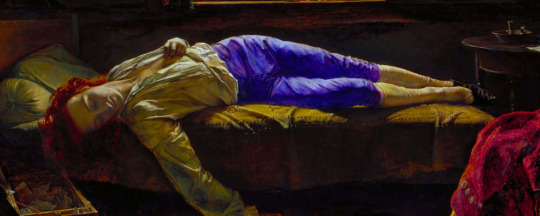
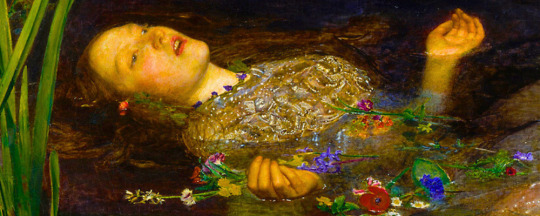

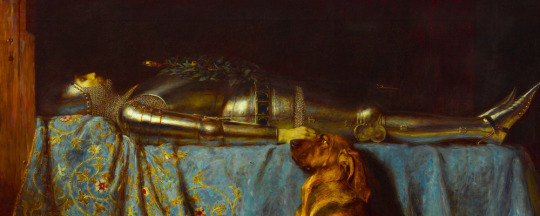

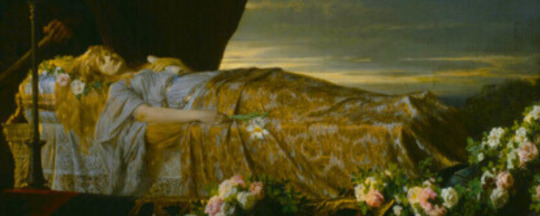
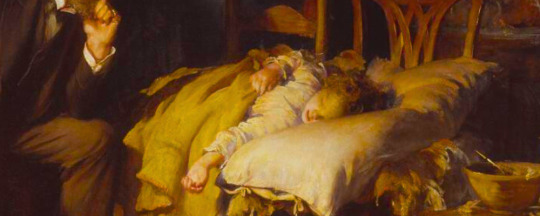
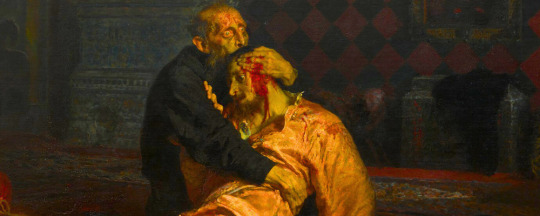
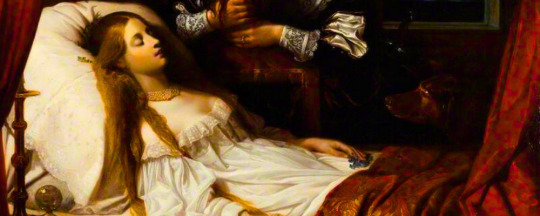

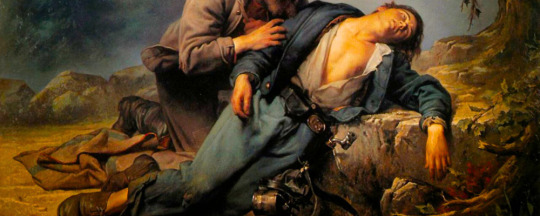

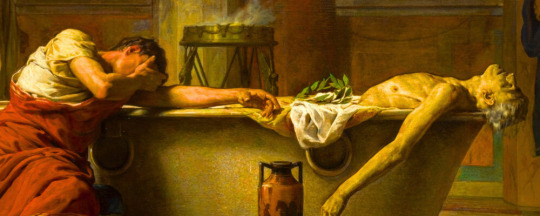
death in art
the death of chatteron by henry wallis (1856) ophelia by john everett millais (1851-52) the execution of marshal ney by jean-leon gerome (1868) requiescat by briton riviere (1888) yellow fever in buenos aires by juan manuel blanes elaine by edward rosenthal (1874) the doctor by luke fildes (1891) ivan the terrible and his son by Ilya repin (1885) the bride of death by thomas barker (1839) lord byron on his death-bed by joseph denis odevaere (1826) recognition: north and south by constant mayer (1865) the lament for icarus by herbert james draper (1898) death of seneca by dominguez sanchez manuel (1871)
#art#art history#henry wallis#sir john everett millais#jean leon gerome#briton riviere#juan manuel blanes#edward rosenthal#luke fides#ilya repin#thomas barker#joseph denis odevaere#constant mayer#herbert james draper#dominguez sanchez manuel#death in art
613 notes
·
View notes
Text
On November 8th 1820, Claire Clairmont wrote some satirical stories in her journal about Lord Byron and Percy Shelley—they were written as ideas for caricatures (the Regency era term for what we would now call editorial cartoons or comic strips):
Wednesday, November 8th.
Caricature for Albé. He, sitting writing poetry, the words “Oh! faithless Woman” round the room, hearts are strewed, inscribed, “We died for love of you.” Another—he catching a lady by her waist, his face turned towards her, his other hand extended holding a club stick in the act of giving a blow to a man who is escaping. From his mouth,
“The maid I love, the man I hate
I'll kiss her lips and break his Pate.”
Three more to be called Lord Byron's Morning, Noon and Night. The first: he looking at the sky, a sun brightly shining—saying: "Come, I feel quite bold and cheerful—there is no God.”
The second towards evening, a grey tint spread over the face of Nature, the sun behind a cloud—a shower of rain falling—a dinner table in the distance covered with a profusion of dishes, he (with a Wallup) says—“What a change I feel in me after dinner; where we see design we suppose a designer; I'll be a Deist—I am a Deist."
The third—evening—candles just lighted, all dark without the windows (a cup of green tea on the table): and trees agitated much by wind beating against the panes, also thunder and lightning. He says
"God bless me, suppose there should be a God—it is as well to stand in his good graces. I'll say my prayers to-night, and write to Murray to put in a touch concerning the blowing of the last Trump."
Pistols are on the table, also daggers—bullets—Turkish scymitars . . .
Another to be called “Lord Byron's receipt for writing pathetic History.” He sitting drinking spirits, playing with his white mustachios. His mistress, the Fornaria, opposite him drinking coffee. Fumes coming from her mouth, over which is written "garlich;" these, curling, direct themselves towards his English footman who is just then entering the room and he is knocked backward. Lord B. is writing, he says.
"Imprimis, to be a great pathetic poet. First prepare a small colony, then dispatch the Mother, by worrying and cruelty, to her grave; afterwards to neglect and ill-treat the children—to have as many and as dirty mistresses as can be found; from their embraces to catch horrible diseases, thus a tolerable quantity of discontent and remorse being prepared, give it vent on paper, and to remember particularly to rail against learned women. This is my infallible receipt by which I have made so much money."
The last his death. He dead extended on his bed, covered all but his breast, which many wigged doctors are cutting open to find out (as one may be saying) what was the extraordinary disease of which this great man died—His heart laid bare, they find an immense capital “I” grown on its surface—and which has begun to pierce the breast—They are all astonishment. One says, “a new disease.” Another. “I never had a case of this kind before.” A third what medicines would have been proper, the fourth holding up his finger (A desert island.)
Caricature for poor dear S. He looking very sweet and smiling. A little Jesus Christ playing about the room. He says:
“Then grasping a small knife and looking mild
I will quietly murder that little child.”
Another. Himself and God Almighty. He says:
"If you please God Almighty, I had rather be damned with Plato and Lord Bacon than go to Heaven with Paley and Malthus." God Almighty: “It shall be as you please, pray don't stand upon ceremony."
Shelley's three aversions: God Almighty, Lord Chancellor, and didactic Poetry . . .
Sources: The Journals of Claire Clairmont edited by Marion Kingston Stocking, Harvard, 1968, Archive.org. “The Lord Byron / John Polidori relationship and the foundation of the early nineteenth-century literary vampire” by Matthew Beresford, University of Hertfordshire June 2019. Byron: A Biography by Marchand, Vol. II, 1957.
#thus a tolerable quantity of discontent and remorse being prepared#literature#regency#regency era#claire clairmont#percy shelley#lord byron#journals#funny#history#writing#poets#writers#satire#geneva squad#the romantics#romantic age#romanticism#romantic poetry#romantic era
27 notes
·
View notes
Text

Lord Byron On His Death-Bed by Joseph Denis Odevaere (c. 1826)
42 notes
·
View notes
Text

The Death of Sardanapalus (1827)
French painter Eugène Delacroix was heavily inspired during the making of this painting by Lord Byron’s poem (Sardanapalus) and Rubens’ love of female flesh, more precisely, flesh in general. Here we see a defeated Oriental potentate, whilst his terrified concubines are being slaughtered by his opponents. His favourite amongst all, with her ghastly, almost lifeless body, stretched across the bed, awaits death with a surprising aura of courage.
Although the story and contents of the painting are hard to digest, the imagery and the human forms painted by Delacroix’s flawless technique, are close to perfection when looked at it carefully.
14 notes
·
View notes
Text

April 2nd, 1919, Edinburgh, Scotland

Montgomery’s father had died only hours after Byron arrived at the MacGregor home days prior. He hadn’t known the late Mr. MacGregor, but he felt for the family. He couldn’t imagine how they felt.
Montgomery was devastated, aimlessly wandering the house or sitting and staring at the ground. His mother had recovered, still weak, but would live. Edeline on the other hand… Byron didn’t know. Some hours she was well enough to speak and sit up, others she would have violent fits, coughing up blood.
“She won’t live,” the Scot whispered.
Byron swallowed. “You’re giving up hope?”
“No. Her body is exhausted. It’s a miracle she’s lasted this long. She knows it too.” He blinked tears from his eyes. “She won’t last the night.”

He, Montgomery, and Elspeth sat quietly. It was an odd thing, holding vigil. They were waiting for his sister to die. All he could think of was Alexander’s death, how unsettling his last breath was, the way he sunk into the cot, skin yellowed. Dead people didn’t look asleep. They just looked dead.
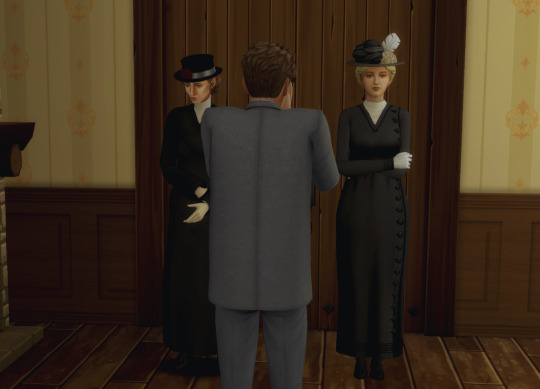
Then the door banged loudly. Elspeth looked incredulous.
“Who is knocking at 11 at night?”
Byron stood. “I’ll see,” he muttered after one glance at Montgomery. The poor man couldn’t move.
To his shock, Rebecca and Giselle walked through the doorway, dressed in black.
“Mama? Giselle?”
Rebecca nodded. “We took the quickest train.”
He stared at both of them. Why were they dressed in black? Why did Giselle look so sullen? Why did his mother look as if the light had disappeared from her eyes?

“...Why are you dressed in black, Edeline is not yet dead. How is father? Has he reco-” He broke off, staring at the tears in his mother’s eyes. “No,” he gasped, feeling faint, tears pooling in his eyes. “No, don’t tell me-”
Rebecca took her son in her arms as he began to cried. “He passed peacefully,” she soothed. “I was holding his hand.”
Byron couldn’t think. He couldn’t breathe. Memories of his father ran through his head and the thought of being the only male Walsh in his family was horrifying.
“My fuckin’ God!” A shrill voice screamed, ruining the moment.
Byron and Rebecca stepped back, stunned by the voice. Giselle looked blindsided by the language.
“That’s Elspeth,” he muttered, panicking seizing his body as he rushed toward the stairs. “Something’s happening.”
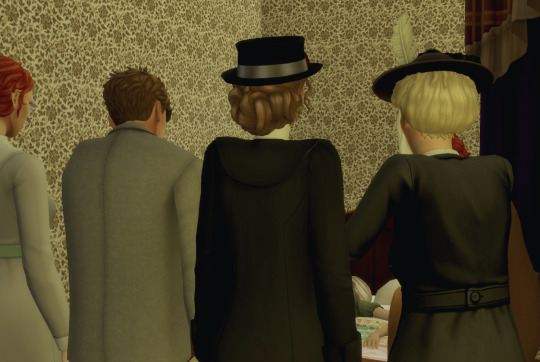

Rebecca screamed the moment she opened the door. Edeline was seizing on the bed, violently hacking blood, staining her nightgown and bedsheets. Montgomery was crying and yelling, begging her to stop as Elspeth stood spellbound, too bound by shock to move. Giselle began to weep, looking away from her sister’s body, and Byron wept, unsure of what to do, still desolate from the news of his father’s death. No, Edeline couldn’t die. Lord, no. Please.
And then all was still.
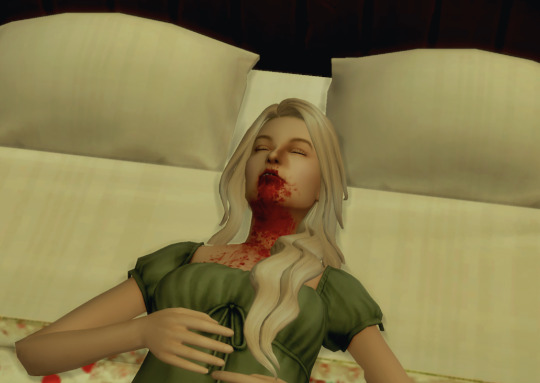
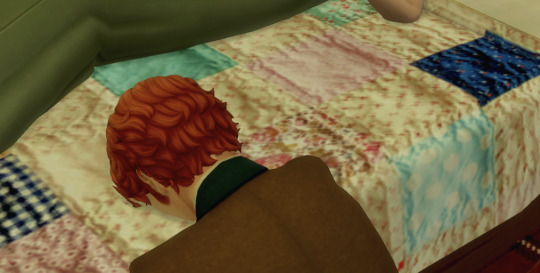
Byron blinked and he saw Montgomery falling to his knees and sobbing into the bed. He blinked and stared at Edeline’s blood-covered face and chest. She was dead.
#the walshes#the walsh legacy#ts4#sims 4 decades#sims 4 historical#history simblr#ts4 historical#ts4 decades challenge#1910s#ts4 1910s#spanish flu#tw sickness#tw death#tw blood#edeline walsh#montgomery macgregor#byron walsh#rebecca walsh
23 notes
·
View notes
Text
Happy holidays or merry Christmas with a side of angst @cream-puffs-stuff
Rose meanings
White roses: reverence and eternal loyalty and ever lasting love
Black roses: major change and death
Peach roses: gratitude
Red roses: I love you
Byron is stubborn and an idiot. But he’ll always be Hullens stubborn idiot, which is how he found himself sneaking into Raven Tree Hall. Hullen knows it’s wrong but he won’t disrespect Byron or his deceased lady wife by sneaking into the funeral. Byron’s dead wife was also his family by blood, sure it was distant but still there just like how the Blackwoods had traces of Bracken blood and vice versa.
Hullen sneaks into Byron’s solar, knowing that being in his bed chambers would be far too intimate and all other places that he could hide would result in him getting caught. After what feels like days but is only about two hours, Byron finally manages to loose his mother in law and have a moment of peace.
It takes Byron several minutes to sense Hullen’s presence and later when he’s confronted with that fact Byron will claim that knew that it was Hullen the whole time. Hullen will gently tease him but also express concern that Byron was so far in his grief that he didn’t notice him. But for now Hullen wants to hold Byron, to comfort him to let him know he’s there for him.
Hullen manages to convince Byron to hold dinner in his solar with his sons and mother in law. Byron asks where Hullen will hide? And can’t hide his surprise when Hullen replies that he’ll claim that he came as a house Bracken representative, Byron’s wife was a Bracken after all. With the plan in place Byron sends the order down to the kitchen staff that they are send up food to his solar, the rest of his guests will have to excuse his absence from the dinner in the dining hall.
Samwell is slightly worried when he enters Byron’s solar and sees Hullen standing there, and the axe that Hullen always carries leaning on the wall. But he calms down when his father indicates that Hullen is safe. Willem tries to act like he isn’t nervous, but he keeps eyeing Hullens blade.
When asked later by Samwell if he too was nervous, Willem will deny it and say that he was interested in the raven on Hullens blade. Even at the young age of five Willem knows that house Brackens sigil is a horse so it’s unusual for Hullens blade to be a raven. But that’s later in the night.
Lady Tully is extremely surprised but also pleased that someone from her house came to offer condolences to her and Byron. She also notices the longing glances that Hullen and Byron give each other, but chooses to ignore them. Instead she asks if Hullens lord father knows that he’s here?
Hullen admits that his father doesn’t but lady Tully and Byron should be receiving a raven with house Brackens condolences soon. Lady Tully is satisfied with that response and tells everyone to sit down to eat.
Samwell decides that as the oldest child and heir to ask Hullen questions about house Bracken. He wants to appear to be a proper heir and learn as much as he can about his enemy’s house, but he’s really more interested in the stories that Hullen tells them. Once he and Willem learn about the monthly contests of Brackens making their horses pretty and showing off new skills learned they’re both begging their father to allow them to visit Stone Hedge.
Hullen says that he doesn’t see the harm in holding a miniature version of house Brackens traditions at the border stones as long as Byron agrees to it. Byron does, he wants his sons to be strong horse riders even stronger than house Bracken and if his sons know the moves then they’ll be able to defeat the Brackens easier. Hullen even offers to send over horses that he’s personally raised to the boys, the horses are gentle and easily trained. Byron almost says no, but decides to trust Hullens judgement.
As soon as dinner is finished lady Tully offers to put Samwell and Willem to bed, Byron starts to protest but stops as soon as lady Tully mentions that he has to find a place for Hullen to sleep. All the adults know that Hullen will share a bed with Byron but tactfully decide to pretend that he won’t in front of the children. Byron gives Samwell and Willem goodnight kisses while also telling them that if they have nightmares to come find him.
After lady Tully leaves with Samwell and Willem, Byron pours more wine for him and Hullen. He needs it if he’s going to catch Hullen up on their years apart, once he gets to the part of him slapping Willem he breaks down. He’s afraid that Hullen will hate him for how he treated his young son, but Hullen just pulls Byron to him while shushing him.
Hullen tells Byron that what he did was not okay, Willem didn’t understand death, but he also understands that Byron had just lost his wife. He also tells Byron that if he ever feels the urge to harm any of his sons again to walk away and if the urges get worse to send a raven to him and he’ll be there no matter what. Hullen also admits that he never stopped loving Byron and he stayed away out of respect for him and his wife but he would like to try again with him.
Byron tells Hullen that he too would like to try again, his duty being done but they should wait until lady Tully leaves. Hullen agrees and with that Hullen pretends to be put out that Byron hasn’t found a bed for him yet. Byron tells him to hush and to just get in his bed with him, he won’t try anything. Hullen tease him by saying that he can’t guarantee that he won’t try anything.
Samwell ends up having a nightmare that night and goes to his father’s room. He almost leaves when he sees Hullen in Byron’s bed, but both men had heard the door open. It’s Hullen that pats the middle of the bed telling Samwell to climb in, to which Samwell does. Willem wakes up in the early morning and senses that Samwell isn’t in the room and decides to go find him. The door opening only wakes Hullen up this time and he once again pats the bed telling him to climb in.
Byron wakes up first when the sun hits his face and sees both his boys safely cuddled in Hullens arms. He commits the scene to memory, it will become his most cherished memory later on. Hullens wakes up minutes after Byron, to the sight of Byron staring at him. Hullen mentions that he should probably leave for Stone Hedge now, he doesn’t want to over stay his welcome. Byron wants to protest but knows that Hullen is right.
Months after Byron’s wife’s funeral he writes to Hullen telling him that he misses him and needs his help his anger is starting to flare up again. Hullen immediately tells his father that he needs to go help a friend, he doesn’t know when he’ll be back or if he’ll be back. Hullen also brings along the horses that he promised Samwell and Willem.
A year passes surprisingly fast, Byron and Hullens relationship is going well. Samwell and Willem have even warmed up to Hullens presence and will cherish the memories of him later in life. Hullen has come to view Samwell and Willem as his own sons, so it was no surprise to anyone who knew about them that Hullen died protecting them. Ironborn raiders had made it all the way to Raven Tree Hall and decided to try to kidnap Byrons heirs. Willem had gone to Samwells room to wish him goodnight but stops when he hears the commotion behind the closed door.
Willem decides to instead find his father or Hullen. So when he literally runs into Hullen in the hallway on the way to his father’s room and tells him what he’d heard it’s no surprise that Hullen is immediately running to save Samwell. He also tells Willem to alert the guards, he’ll save Samwell but the guards will be needed to detain the intruders.
By the time the guards and Byron have been alerted to the fact of intruders being in Samwells room it’s too late. Hullen had been stabbed in his stomach and as he lay dying in Byron’s arms he managed to ask if Samwell was unharmed. When he hears that Samwell is unharmed, he’d done as Hullen had told him which was to hide underneath the bed, Hullen dies with a small smile.
Humfrey invited Byron to the funeral and makes a point to let him know that he doesn’t blame him for Hullens death. He tells Byron that he died protecting those who he loved, and even lets Byron keep Hullens dagger. Humfrey also gives Byron Hullens journals and letters that he never sent and the letters that he had sent Humfrey that mentioned how much he loved and cared for Byron and his children.
Byron gratefully accepts the generous gifts from Humfrey with a request of his own. That Humfrey lay red,black, white and peach roses at his grave every month. Byron tells him that he’ll pay for the cost but he wants Hullen to see his message from beyond the grave. Humfrey agrees to his request knowing how much Hullen loved him and seeing how much Byron loved him.
Years pass, Samwell grows up and fathers a bastard and a true born heir. Willem grows up and vies for Rhaenyra’s hand, and also looses his love when it’s revealed that Jerrel was Amos’s brother. Byron has been dead for five years by the time that Willem should be seriously looking for a wife. So without their father there to guide Willem, Samwell decides to consult his father’s personal archives.
It was a complete accident that the first journal that he pulled was Hullens. In it Hullen mentioned that Byron was forever lost to him, lady Tully had finally agreed to let her daughter marry Byron. Both Hullen and Byron knew that loyalty and duty to their houses always came first, so they mutually agreed to stop seeing each other. The only thing that Hullen kept from the relationship was the dagger that Byron had made for him, sure it had a ravens head as the handle but it was nice reminder of their love. Hullen mentions that he hopes Byron would keep the dagger that he had made for him, it had a horse head as the handle.
Samwell spends hours reading about how his father never stopped loving Hullen, it was there next to his love for his lady wife. He also read about how Hullen had been married but lost his wife during child birth. Samwell also finally figured out why so much coin was spent on flowers, Byron had written down his idea. Eventually Samwell finds his fathers and Hullens daggers, and decides to display them in the library, both men being important to house Blackwood.
With all of the new information about his father, Samwell decides to convince Willem that his person is out there. He wouldn’t care if it was Amos or a woman or both, he just wants him happy. But Willem views his father as a warning of a curse. Both people that Byron loved had died such tragic deaths, their mother from a long illness and Hullen protecting Samwell. Willem still loved Amos and didn’t want him to die protecting him and he didn’t want a wife to suffer an illness for years like his mother.
Samwell understands but also doesn’t, he tries to tell Willem that he’s not cursed, sure he looks like their father but he’s not him and the gods wouldn’t curse him. But Willem refuses to listen to logic. Two years pass and the war between Aegon and Rhaenyra starts.
Samwell dies at the battle of the burning mill, Amos finally having gotten his revenge of Jerrels death by killing Samwell. Willem doesn’t want to fight Amos but knows that he will if he needs to. He does end up fighting him but also looses his life in the process.
The night before they reach Harrenhal Willem confesses that he still loves Amos and he’s sorry for what happened between them all those years ago and now. But since he’s cursed it’s best that they didn’t stay together.
Oscar takes Willems head for the crimes he committed and Amos was never able to tell Willem that he forgave him for everything and that he didn’t think he was cursed. All Amos can hope for is to meet him in the afterlife to tell him how he really felt about Willem.
He does get his wish along with seeing his brother, father and uncle again. Hullen and Byron are married in the afterlife with Willem and Amos also marrying now that Willem can’t loose Amos to death.
2 notes
·
View notes
Text
Poem of the Day 8 June 2024
And Thou art Dead, as Young and Fair
BY LORD BYRON (GEORGE GORDON)
And thou art dead, as young and fair
As aught of mortal birth;
And form so soft, and charms so rare,
Too soon return'd to Earth!
Though Earth receiv'd them in her bed,
And o'er the spot the crowd may tread
In carelessness or mirth,
There is an eye which could not brook
A moment on that grave to look.
I will not ask where thou liest low,
Nor gaze upon the spot;
There flowers or weeds at will may grow,
So I behold them not:
It is enough for me to prove
That what I lov'd, and long must love,
Like common earth can rot;
To me there needs no stone to tell,
'T is Nothing that I lov'd so well.
Yet did I love thee to the last
As fervently as thou,
Who didst not change through all the past,
And canst not alter now.
The love where Death has set his seal,
Nor age can chill, nor rival steal,
Nor falsehood disavow:
And, what were worse, thou canst not see
Or wrong, or change, or fault in me.
The better days of life were ours;
The worst can be but mine:
The sun that cheers, the storm that lowers,
Shall never more be thine.
The silence of that dreamless sleep
I envy now too much to weep;
Nor need I to repine
That all those charms have pass'd away,
I might have watch'd through long decay.
The flower in ripen'd bloom unmatch'd
Must fall the earliest prey;
Though by no hand untimely snatch'd,
The leaves must drop away:
And yet it were a greater grief
To watch it withering, leaf by leaf,
Than see it pluck'd to-day;
Since earthly eye but ill can bear
To trace the change to foul from fair.
I know not if I could have borne
To see thy beauties fade;
The night that follow'd such a morn
Had worn a deeper shade:
Thy day without a cloud hath pass'd,
And thou wert lovely to the last,
Extinguish'd, not decay'd;
As stars that shoot along the sky
Shine brightest as they fall from high.
As once I wept, if I could weep,
My tears might well be shed,
To think I was not near to keep
One vigil o'er thy bed;
To gaze, how fondly! on thy face,
To fold thee in a faint embrace,
Uphold thy drooping head;
And show that love, however vain,
Nor thou nor I can feel again.
Yet how much less it were to gain,
Though thou hast left me free,
The loveliest things that still remain,
Than thus remember thee!
The all of thine that cannot die
Through dark and dread Eternity
Returns again to me,
And more thy buried love endears
Than aught except its living years.
2 notes
·
View notes
Text
Some further comments on those Don Giovanni program notes I just reblogged:
(1) I do think the way the program notes apply each of the Seven Deadly Sins to the opera's non-Giovanni characters is interesting. I don't necessarily agree with all the choices, though. I would never think to name "envy" as Donna Elvira's sin: yes, she wants a man who isn't "hers" anymore, but she doesn't envy the other women he seduces, she tries to protect them from him. I'm not sure if I agree with their choice of "lust" for Donna Anna either. But I like the way they did it. If they had to choose "lust" as Anna's sin, I'm glad that instead of taking the popular route and imagining that she lusts after Don Giovanni, they claim that her fatal flaw was lust for Don Ottavio, because she let the man she thought was him into her bedroom, despite how unseemly that would have been in their time and place. I wouldn't mind seeing more productions take that view of her. The idea that she blames herself for her own sexual assault and her father's death because she gave too much into her passion for Ottavio is a valid one. It would explain why she refuses to let Ottavio console her or even think of marrying him until her mourning is done, without claiming that she doesn't really love him.
(2) It's interesting to see Lady Caroline Lamb's famous quote about Lord Byron, "Mad, bad, and dangerous to know," applied to Don Giovanni. It fits, of course, but it stands out for me because I've only seen that quote applied to one other man besides Byron himself. A man associated with moody Romantic literature because his sisters wrote it: Branwell Brontë. And I had just been thinking that Christopher Maltman's Don Giovanni in the 2008 Salzburg production – the Don who's slowly and painfully dying throughout the opera, but trying to pretend he isn't – reminds me of the stories of two of the Brontë siblings' deaths. First, Branwell, with his alcohol, drugs, and love affairs, the fact that he seems to have ignored his illness and stayed up and about in the village until just a few days before he died, and the legend that at the very end, either to emulate the Roman emperor Vespasian or just to prove the power of human will over bodily weakness, he insisted on getting out of bed and died standing up. (I don't know if that story is true or not, though – Charlotte's letters never mention it.) Second, Emily, who also stubbornly ignored her illness, refused to see a doctor or take medicine, and struggled to go about her normal life for as long as she was physically able. Of course they were dying of tuberculosis, not a bullet in the stomach. But I still imagine that for their sisters, their father, and the servant women Tabby and Martha, helplessly watching them was a process very much like what poor Leporello goes through in that Don Giovanni production.
#opera#don giovanni#thoughts#donna elvira#donna anna#the brontes#branwell bronte#emily bronte#tw: death
10 notes
·
View notes
Text
Every night when they made camp, Ygritte threw her sleeping skins down beside his own, no matter if he was near the fire or well away from it. Once he woke to find her nestled against him, her arm across his chest. He lay listening to her breathe for a long time, trying to ignore the tension in his groin. Rangers often shared skins for warmth, but warmth was not all Ygritte wanted, he suspected. After that he had taken to using Ghost to keep her away. Old Nan used to tell stories about knights and their ladies who would sleep in a single bed with a blade between them for honor’s sake, but he thought this must be the first time where a direwolf took the place of the sword.
...
The day before last, Jon had made the mistake of wishing he had hot water for a bath. "Cold is better," she had said at once, "if you’ve got someone to warm you up after. The river’s only part ice yet, go on." Jon laughed. "You’d freeze me to death."
"Are all crows afraid of gooseprickles? A little ice won’t kill you. I’ll jump in with you t’prove it so."
"And ride the rest of the day with wet clothes frozen to our skins?" he objected.
"Jon Snow, you know nothing. You don’t go in with clothes.”
"I don’t go in at all," he said firmly, just before he heard Tormund Thunderfist bellowing for him (he hadn’t, but never mind). (Jon II, ASoS)
--
[Zei] tried to kiss Jon too, but he held her by the shoulder and pushed her gently but firmly away. "No," he said. I am done with kissing. (Jon VIII, ASoS)
--
They crossed the yard together, just the two of them. The snow fell all around them. She walked as close to Jon Snow as she dared, close enough to feel the mistrust pouring off him like a black fog. He does not love me, will never love me, but he will make use of me. Well and good. (Melisandre I, ADwD)
--
"He may not heed your words, but he will hear them." Val kissed him lightly on the cheek. "You have my thanks, Lord Snow. For the half-blind horse, the salt cod, the free air. For hope."
Their breath mingled, a white mist in the air. Jon Snow drew back and said, "The only thanks I want is—" (Jon VIII, ADwD)
--
"Princess." Jon inclined his head. Shireen was a homely child, made even uglier by the greyscale that had left her neck and part of her cheek stiff and grey and cracked. "My brothers and I are at your service," he told the girl.
Shireen reddened. "Thank you, my lord." (Jon IX, ADwD)
--
The sight made Lady Alys smile. "Do you dance often, here at Castle Black?"
"Every time we have a wedding, my lady."
"You could dance with me, you know. It would be only courteous. You danced with me anon."
"Anon?" teased Jon.
"When we were children." She tore off a bit of bread and threw it at him. "As you know well."
"My lady should dance with her husband."
"My Magnar is not one for dancing, I fear. If you will not dance with me, at least pour me some of the mulled wine." (Jon X, ADwD)
--
The warrior witch Morna removed her weirwood mask just long enough to kiss his gloved hand and swear to be his man or his woman, whichever he preferred. (Jon XII, ADwD)
--
And the character I’d want to be? Well who wouldn’t want to be Jon Snow — the brooding, Byronic, romantic hero whom all the girls love.
[Source]
21 notes
·
View notes
Text
Reader Bingo Board 1: Right Column Bingo
For context, there were three full Bingo boards, then all three versions condensed to be 4x4 and finally all three versions condensed to be 3x3. Here is one way to score bingo on the first board.

Foot Fetish
(Wow, I could not find anything on this, but here is a story that mentions feet 4(!) times - it might not feel like a lot but I was scraping the bottom of the barrel here.)
Fortune In Spades by LittleMulattoKitten
Summary:
Hermione was supposed to be married or otherwise "contained" as a concubine by her twentieth birthday, like the rest of the female muggleborns and halfbloods in Britain. She was not supposed to teach herself magic in secret and hope that one muggleborn peasant was insignificant enough to go unnoticed. She never expected to end up escorted up to the castle to the King's study. Nor did she expect him to decide her fate personally. King Tom never expected to find his favorite kind of woman —clever, strongwilled, and powerful— in a muggleborn scullery maid who'd somehow mastered wandless casting without a tutor. Law-breaker or not, she didn't belong in the dungeons. She belonged at his feet. She belonged in his bed. She belonged to him. He just had to show her. Written for Weestarmeggie's Tomione Smut Fest 2018.
2. Tied Up
The Last Time by WildKitsune
Summary:
Tom and Hermione keep finding reasons to hook up even though they are broken up, and they both know they will never be right for each other. Each time it happens, they always swear it will be the last time. Prompt by weestarmeggie17 “Tomione have split up but keep ending up in bed together because they can't help themselves”
3. Swallowing
Sunlit Garden by januarywren
Summary:
“I want a hero: an uncommon want,” Tom murmured, his index finger tracing beneath the finely printed words. Lord Byron’s work was a favorite of his, and his wife’s, “when every year and month sends forth a new one, till, after cloying the gazettes with cant, the age discovers he is not the true one – “ His wife curled in his arms, warm and sated with his spend dripping from her thighs. She made for a decadent sight; her chignon askew and her cheeks flushed pink, while Tom held her closer to him. She was the only one he desired close, the only one he had never considered pushing away. Nor did he desire the afternoons they spent at the manor to end when they made love freely throughout every wing of the manor and every sunny place outside. The garden was well tended, while the apple orchard stretched throughout countless acres, ensuring they would never be caught en dishabille unless they wished it. It was their private paradise, or their ‘Eden,’ as they called it. One that others would never know of... For the Tomione 2020 Fic Gift Exchange! 🔥💖
4. Anal
Teaching Miss Granger by Anonymous
Summary:
Hermione never foresaw herself breaking the rules, let alone one. It all changed in her sixth year when a new professor challenged her. Reading from books had its limits, he told her. Professor Riddle dared her to step out of her comfort zone. What was the point if she never put her knowledge to use? Magic had a purpose. She needed to find hers. Her sixth year passed by quickly as she learned more than she ever could. But reading books was still one of her favourite hobbies. Nothing could ever replace it until she discovers another passion.
5. Violence at Foreplay
A Soul's Epilogue by TheSoulweaver
Summary:
Years and years of war would exhaust a soul, straining it and wringing it dry with no escape except death. However, Death had a different plan for Hermione Granger, the brightest witch of her age. Her soul was transferred to a girl who was supposed to be dead. A handsome dark wizard had made sure of that. Or so he thought. *** "I vow to dismantle you, Tom," she whispered against his skin, her hands wandering from his chest to his shoulders in barely perceptible caresses. Sensually, she licked over his flesh. "I will slowly unravel you, and then I will mould you anew." Before he could respond, she sank her teeth into his throat, just enough to cause a sting. His hips bucked into hers, rubbing deliciously over her bare pussy. "And if that fails," she whispered, "I'll end you myself."
#Tomione#Tom Riddle Jr#Hermione Granger#Tom Riddle Jr x Hermione Granger#Tom Riddle Jr/Hermione Granger#Volmione#Lord Voldemort#Lord Voldemort x Hermione Granger#Lord Voldemort/Hermione Granger.#Tomione Smut Fest 2024#Tomione Smut Fest 2024 Bingo Challenge#Tomione Smut Fest 2024 Bingo Board 1
0 notes
Text

Lord Byron on his Death-Bed
Joseph Denis Odevaere
oil on canvas, c. 1826
#Joseph Denis Odevaere#art#artist#painter#Lord Byron on his Death-Bed#oil on canvas#c. 1826#painting
32 notes
·
View notes
Text
More thoughts about The Tenant of Wildfell Hall after finishing it…
1 good movie adaptation WHEN?
2 the themes of universalism and the idea that everyone can change if they want it bad enough and nothing is permanent and we have the ability to make choices and self-destruction has social repercussions bc it affects the ppl around you… yeah, my heart is full!
3 helen successfully microdosing her own child with poison to give him a pavlovian response to alcohol so he wouldn’t end up as an alcoholic like his father and grandfather because she intuitively knew he had a genetic predisposition to addiction despite having no modern knowledge of science or psychology. excellent.
4 the shit helen goes through in this novel is unreal. our girl is basically trapped in a frat-house — complete with the booze, drugs, laughter, fraternizing, sportsmanship, anti-intellectualism, infidelity, and rape culture.
5 as a sad aficionado of the romantic era & byronic studies i can 100% without a doubt say that not only is arthur based on some popular victorian conceptions of lord and lady byron and their marriage, but the brontës must have been familiar with biographical writing on byron’s life! i’ve found several academic texts to support this and it’s 100% true.
6 also, as a person who grew up with relatives who suffered from severe substance abuse and mental illness, i’m pretty confident in saying that the brontë sisters must have had some inside knowledge to spark their sustained interest in writing about these subjects. there are specific details and feelings pertaining to these topics which are documented with so much acuity it must have been personal to them. it seems a lot of academics theorize this as well — however, i still don’t know enough about the brontë family biography to form my own opinions on this topic yet!
7 helen is such a progressive mother (considering her circumstances and level of education, and the non-harmful drugging aside which is questionable today but within the narrative understandable) and her theories on education and parenthood are so advanced.
8 i think arthur’s friends (especially mr. hargrave and annabella) are as bad as he is, considering the fact that they enable him and they could easily use their influence to try and sway him considering but they choose not to — only partly because he’s the “leader of the pack,” but partly because they also have zero respect for helen and enjoy openly bullying and abusing her in her own household
9 big shoutout to the servants in this novel who are the real heroes. all throughout the novel (especially starting from Gilbert’s POV considering he and his family are a little poorer off than those of the Huntingdon circle) we see the lower-classes and smaller owners gradually triumphing against the upper-classes, gentry, and larger land owners. i love the line about rachel having to sell helen’s fine gowns for cheaper ones, and how helen notices that rachel still looks decent while dressed like a more common woman.
10 the very ending with everyone’s resolutions was a bit choppy and rushed but i don’t mind because everything went how i wanted it to go lol. but the ending for arthur/helen — the fact that he never repented, but helen still believes in universal salvation nonetheless, and still took care of him even though she didn’t have to, after everyone else abandoned him — the person he treated the worst still cared for him when no one else did — she fulfilled all her marital vows and he fulfilled none of his — his fear of death — her letter of december 5th, her holding his hand until the very end — his last words, “pray for me!” don’t leave me!” — all the unspoken words on her part, her feelings of helplessness, her telling him that she cannot save him, his crying and cursing the world — her fainting from exhaustion — him continuing to act like a brat on his death bed — her taking control, her cleverness with the contract — her lack of closure — aahhhh! just so heart wrenching and frustrating and angsty yet also cathartic and realistic.
65 notes
·
View notes
Photo

𝘓𝘰𝘳𝘥 𝘉𝘺𝘳𝘰𝘯 𝘦𝘯 𝘴𝘶 𝘭𝘦𝘤𝘩𝘰 𝘥𝘦 𝘮𝘶𝘦𝘳𝘵𝘦 (𝘑𝘰𝘴𝘦𝘱𝘩-𝘋𝘦𝘯𝘪𝘴 𝘖𝘥𝘦𝘷𝘢𝘦𝘳𝘦, 1826)
#arte#pintura#lord byron en su lecho de muerte#joseph-denis odevaere#siglo xix#1826#joseph dionysius odevaere#george gordon byron#lord byron on his death-bed#neoclasicismo#neo-classical#art#painting#xix century#neo-classicism#19th century#ancient rome
4 notes
·
View notes
Text
the haunting of villa diodati is so unfairly slept upon
#dw shit#feel like ppl saw vota and immediately voted it her best ep but like#hotvd was better#the slowly increasing Dread while still being funny#13's breakdown#the first time they explicitly mention the thasmin elephant in the room#13 sitting on that bed in bi lighting (either took years from me or added them. can't tell)#graham can see ghosts#13 in a stupid hat#byron being like 'you will herald the end of earth and humanity but holy shit you're hot as fuck'#oh and 13 breaking into shelley's brain and forcing him to live through his early death in a HOrrifying display of time lord bullshit#terrible and iconic#yaz's outfit.#except the bonnet which was awful. bonnets are terrible#anway i could go on but the point is. It's like the best written ep of s12 from a technical standpoint imo.#fotj loses out on the crown for the awkward jack shoehorn like it's a video game#it was so close to being perfect
21 notes
·
View notes
Photo

Lord Byron on his Death-bed - Joseph Denis Odevaere (c. 1826)
8 notes
·
View notes
Photo



December 13th 1585 saw the birth of William Drummond of Hawthornden, the noted Scottish poet.
William Drummond was born at Hawthornden Castle near Edinburgh in 1585, the son of the first Laird of Hawthornden, who was one of King James I’s ushers. He was educated at the Royal High School of Edinburgh and gained an MA at Edinburgh University in 1605. He then spent two years in France studying law.
He succeeded to the title on the death of his father in 1610 and abandoned his law studies in favour of becoming a poet. In 1613 his first poem, Tears on the Death of Meliades, an elegy on the death of Henry, Prince of Wales, was published. This was followed in 1616 by Poems: Amorous, Funerall, Divine, Pastorall, in Sonnets, Songs, Sextains, Madrigals, a lament following the death the previous year of his wife to be. In 1617 he wrote Forth Feasting, a poem celebrating James I’s first visit to Scotland that year, and in 1618 he was visited by the poet Ben Johnson.
In the mid 1620’s he experimented with a number of military inventions, including a primitive machine gun, none of which appear to have been successful. After travels to the continent he settled permanently at Hawthornden and married Elizabeth Logan who bore him nine children, only one of whom outlived him. He started work on a history of Scotland and produced a number of Royalist political pamphlets before his death in 1649.
He was one of the first Scottish poets to write in English and is one of 16 poets and writers whose names appear on the Scott Monument in Edinburgh which include Lord Byron, Robert Burns, and Tobias Smollett. His most important works are The Cypresse Grove, an essay on the folly and the fear of death, and his poems, many of which are adaptations from French, Italian, and Spanish. He was a great collector of scholarly books in Latin, Greek, Hebrew, French, Italian, and English, most of which he bought in France. In 1826 he generously donated a large number of these to Edinburgh University.
Her Passing
The beauty and the life Of life's and beauty's fairest paragon —O tears! O grief!—hung at a feeble thread To which pale Atropos had set her knife; The soul with many a groan Had left each outward part, And now did take his last leave of the heart: Naught else did want, save death, ev'n to be dead; When the afflicted band about her bed, Seeing so fair him come in lips, cheeks, eyes, Cried, 'Ah! and can Death enter Paradise?'
8 notes
·
View notes